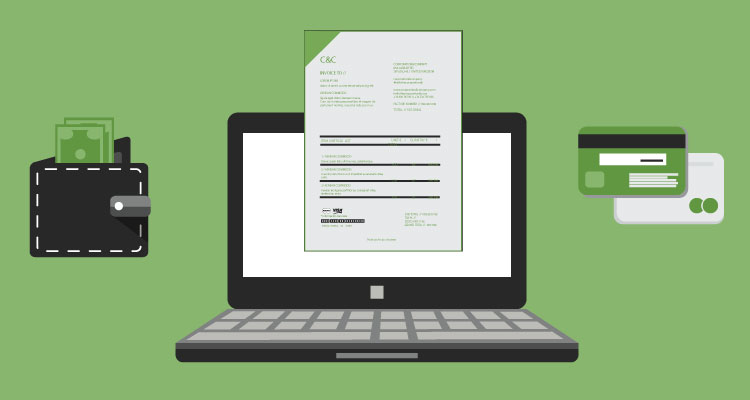Collecting payments is a constant struggle for businesses of all sizes across the globe. According to a U.S. Bank Study, about 82 percent of small business failures are due to inadequate cash management.
Cash flow represents the amount of cash that flows in and out of your business. So how can something that seems so simple be so difficult to maintain? The answer is timing. For small businesses, most of whom have very little in cash reserves, it’s absolutely imperative that invoices are paid on time so they can fulfill orders and operate consistently.
Even worse, many small business owners are left chasing down payment even after the work is complete. Luckily, there are plenty of solutions for you.
Table of Contents
ToggleHere are 5 proven strategies you can use to ensure you get your invoices paid on time.
Set Clear and Non-Negotiable Due Dates
Communication is key. Before engaging with a client, you need to make sure you’re able to have an open and transparent dialogue with them. When setting a due date, avoid invoicing terms like “upon-receipt” or giving them a number of days i.e. “due in 15 days, 30 days, etc…”. Instead, give your client a physical date. That way, there is essentially no room for confusion or misinterpretation.
When setting the date, make sure it is clearly discussed and agreeable to your client. You can also include late penalties should the client miss the date. That way, if they do pay late you’re compensated for it.
Find the Right Point of Contact
Being able to identify people’s strengths and weaknesses is one of the most valuable assets you can have in life. Some individuals just don’t have the wherewithal for accounting. That being said, you need to find and engage the right contact when billing your clients. If your client is a sole proprietor, this doesn’t apply to you. But more often than not, there are a few options when it comes to your point of contact.
Make sure you’re engaging with the individual who is authorized to complete the payment. If you communicate through a middle-man it will only delay the process further.
Utilize a Digital Solution
As we move more towards a digital economy, the need for online payment solutions is steadily increasing. These platforms allow you to seamlessly send, receive, and track payments and can be accessed from anywhere. Many of the top payments companies also offer mobile payments solutions as well, so you’ll never have to leave your finances unattended.
When looking for the right platform it’s important to evaluate the current state of your accounting needs so you can choose a product that can handle and scale with your business.
Here are a few key features to look for in a digital accounting solution:
- Online invoicing: This should be at the top of your list. Look for a platform that allows you to send and track invoices all on the same platform. The ability to accept deposits and send recurring invoices is also a huge plus.
- Multiple payment types: If you want your clients to pay in a timely manner, you need to give them multiple payments options. Find a platform that allows your clients to pay via credit/debit cards, eChecks, ACH, and even cryptocurrency.
- Payment technology: When choosing a platform make sure you have access to a wide range of payment technologies. For example, mobile credit card scanners are great for small businesses. Former companies like Flint offer dongle-free credit card processing.
In addition to these features, make sure you choose a reputable company that offers plenty of support.
Encourage Recurring and Automated Payments
If applicable, you should absolutely push your client to agree to a recurring invoice schedule. That being said, make sure you choose an invoicing solution that offers this functionality. Once your client opts into the payment schedule, you’ll theoretically never have to worry about a late payment again.
This strategy is great if you’re working on a month to month agreement with a client as a contractor. This is one of the best strategies to avoid late or delayed payments if it can be implemented.
Request a Deposit Before Starting Work
A great way to to avoid late payments and build a strong relationship with your client is to request an upfront payment before starting work. A lot of small business owners are a bit timid when it comes to asking for deposits. Since you haven’t proven your worth yet to the client, how can you expect them to put down their money? There’s no real right answer to this question. However, it’s important for every small business owner to have the confidence to make the ask. This will build confidence in your client and hence strengthen the relationship between you. Additionally, your client will be invested and you’ll be locked in to produce quality work.
Once your client opts into an initial deposit, it is very unlikely that they will miss the second payment especially if you withhold the product or service.
Final Thoughts
The truth is, there is no perfect solution to avoid late payments. Some clients just lack punctuality in which case you may need to rethink who you work for. Regardless I strongly recommend implementing these strategies if you’re having trouble collecting payments from clients.
















